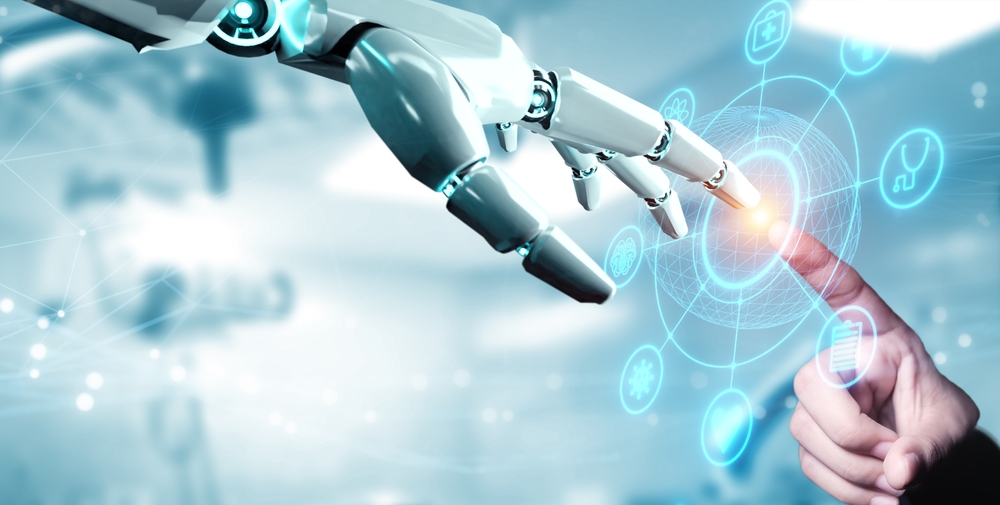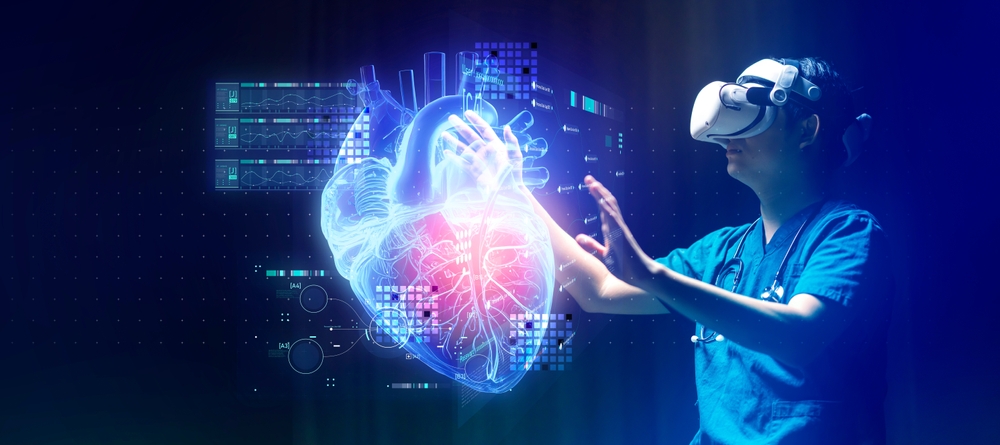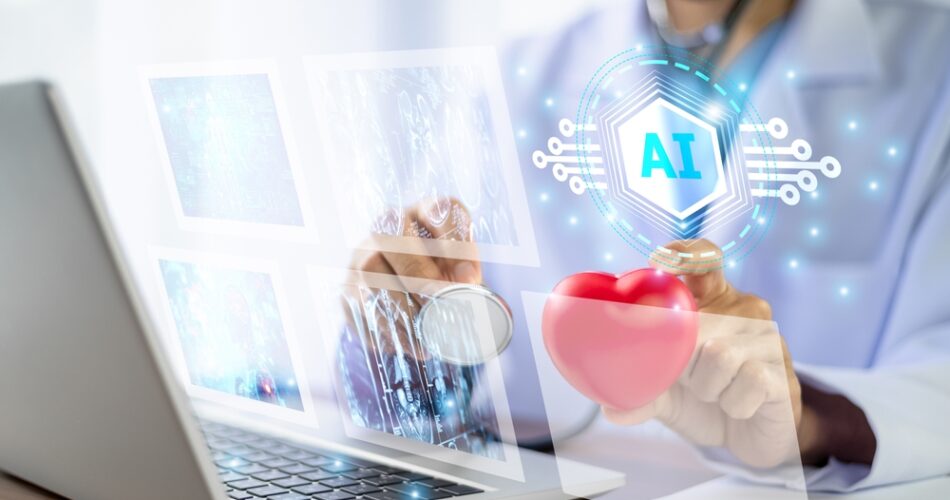Wholly Revolutionizing Patient Outcomes and Delivery of Services
Artificial Intelligence (AI) is thus transforming the healthcare ministry by boosting delivery of services, optimising business processes, and supporting informed decision making. Alle the AI support from diagnostics and treatment planning to patient handling are now considered essential in modern health care. In this guide, we’ll be going through all the varied fields where Healthcare is incorporating AI, and further discuss on what HAL can do and cannot do, its advantages, constraints, and where it can be heading in future.
Health AI Essentials

Health informatics is the way healthcare is being delivered through integrating artificial intelligence that the current generation of computers applies to search and evaluate perspectives of health analysis on large datasets. The assumptions made by AI can improve diagnoses, foresee patient outcomes, tailor treatment approaches, and even organizational workloads in healthcare.
Industries and Branches Where AI is Already Becoming Kits_radio
-
Diagnostic Assistance –
Medical Imaging: AI can easily detect diseases from X-ray, MRI or CT scan since they are very accurate. For instance, deep learning models can diagnose a problem like a tumor or a fracture more often and accurately than a human radiologist.
Pathology: In another procedure, artificial intelligence aids pathologists in deciding what the tissue sample of a patient maintains, whether it contains cancerous cells or other significant problem. -
Predictive Analytics -
Patient Outcomes: In this system, patients’ medical history is used to forecast their future responses and treatment changes can be made in advance. It is most helpful especially in chronic conditions like diabetes, and cardiovascular diseases.
Epidemic Outbreak Prediction: Specifically, after processing the information received from different sources, AI is able to anticipate and monitor epidemics, in order to adopt the necessary measures. - Personalized Medicine - It can also comb through large amounts of data regarding a patient’s genes and illnesses in order to fit the treatment to a patient in question. This is a revolutionary approach in oncology through which treatment can be given with respect to tumor tissue genotype.
- Virtual Health Assistants - AI enabled chatbots and virtual health assistants can practically be available round the clock for patients. They can handle simple health questions and concerns, set up appointments and prescribe basic medication reminders which boosts patient participation.
- Operational Efficiency - AI assists in some clerical tasks these include appointment, invoicing and claim reimbursement. A delegation of these tasks will in turn lead to improved healthcare delivery and reduced expenses according to providers.
Benefits of AI in Healthcare

The integration of AI in healthcare offers numerous advantages:
Enhanced Accuracy: AI algorithms can experience faster data processing of various data sets, and thus can improve both diagnosis and treatment plans.
Increased Efficiency: E-discovery system automation of of operations allows general healthcare practitioners to address critical tasks ensuring patients’ care and organization flow.
Cost Reduction: AI seems to be reducing wastage of health resources, minimizing errors hence cutting down the overall costs of health systems.
Improved Patient Outcomes: This means that health performance is definitely likely to improve since patients get better diagnostic methods and treatment plans which suit them.
Challenges and Considerations
Despite its potential, the adoption of AI in healthcare faces several challenges:
Data Privacy: Since patient details are provided it becomes a question of personal data protection and safety. Following the set laws or rules, for instance, the Working with HIPAA regulations is very important.
Integration with Existing Systems: AI solutions when applied to conventional healthcare platforms prove costly and challenging to integrate.
Bias in Algorithms: Major problems that may arise from the use of AI systems include; If the AI system is trained with bias data then bias results will be produced hence discriminating the different population groups when it comes to healthcare services.
Acceptance by Healthcare Professionals: Concerning AI implementation in healthcare, some medical facilities might lack cooperation because some employees may fear to be replaced by smart technologies or they do not have confidence in AI decisions.
Real-World Health Applications Using Artificial Intelligence

-
Let’s get deeper into some of the current examples of how AI is being used in the healthcare industry
-
IBM Watson Health
Taken through the patient’s record, the IBM Watson applies artificial intelligence and scrutinizes medical literature to recommend the best approach. It has been most successful in cancer treatment, which makes it easier for oncologists to select the best treatment regimens for a given patient depending on his or her genotype. -
Google DeepMind Health
Specifically, DeepMind’s AI systems are built to help clinicians to diagnose disease and anticipate patient decline. In eye diseases identification, there have been positive outcomes toward developing computational models, which can match human performance. -
Aidoc
Aidoc offers radiologists tools that are artificially intelligent to help them detect concerns in medical images. What their technology can do is sort cases depending on their severity hence the patients receive timely attention. -
Zebra Medical Vision
This business concentrates on creating technology solutions that can dissect medical imaging data. Its AI is designed to recognize a plethora of states such as multiple cardiovascular diseases and various types of cancer, thus assisting radiologists. -
Babylon Health
Babylon is an app that uses AI and telemedicine so that patients can speak to doctors, as well as receive a diagnosis of their condition based on their symptoms. This platform helps improve healthcare delivery especially in areas where resources on healthcare facilities are scarce.
Challenges and implications of using Artificial intelligence in healthcare
AI in health care already has a bright future since there continue to be research and innovation to come up with new applications. Here are some trends to watch:
Increased Personalization: There are indications that as the technology advances even more tailored therapeutic approaches will become feasible based on information gained from genomics, wearable devices, and patient activity.
AI in Drug Discovery: AI is starting to become involved in the process of advancing drug discovery processes based on analyzing which formulations are likely to be successful.
Enhanced Remote Monitoring: In light of telehealth advancement, AI will bring efficient monitoring of patients through wearable technologies, and mobile applications for constant health evaluation.
Improved Mental Health Support: Smart systems are emerging in clinical diagnosis and counselling for mental disorders using input from the patient and dictating interventions based on this input in real time.
Conclusion
AI is ready to revolutionize medicine like never before, and can help improve diagnostic, therapeutic and organizational outcomes. However, there are some obstacles for achieving these aims, but the benefits for patients and healthcare organizations are quite tangible. As we advance deeper in utilizing and applying these technologies, there are certain ethical issues that need to be discussed, data privacy, and availability of these AI health improving technologies.
In this case, by following all these progress toward AI in healthcare, the healthcare professionals, and institutions can bring the utilization of AI in enhancing the healthcare system and making it better and more compassionate to the healthcare beneficiaries.
This guide aims at introducing AI in the context of the modern healthcare industry, the advantages and possible drawbacks of its application, as well as the possible futures in both short and long terms. Incorporation of ethical and practical concerns in the use of AI innovation can improve the quality of the healthcare delivery and concern facility.


